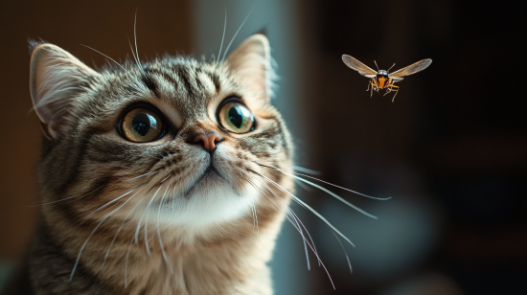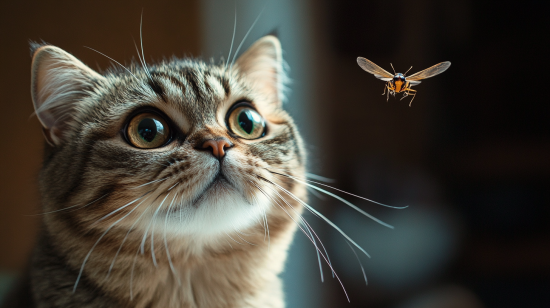Have you ever caught your cat making a strange, rapid chattering sound? This usually happens when they spot a bug or bird. It’s a sound that often puzzles pet owners. So, why do cats make this noise? The behavior is tied to their instincts. Let’s take a closer look at why cats chatter and what it means.
What Is the Chattering Sound?
The chattering sound is a high-pitched noise. It is often accompanied by rapid jaw movements. Cats typically make this noise when they fixate on potential prey. This can be a bird, insect, or small animal. The cat seems excited, but also a bit frustrated. This is because they can’t reach their target.
Why Do Cats Make This Chattering Sound?
Cats make this sound for a few reasons. It is tied to their instincts and their desire to hunt.
- Spotting Prey: Cats often chatter when they see prey, like a bird or insect.
- Frustration: The prey may be out of reach. This can cause a mix of excitement and frustration.

In such moments, a cat’s body language also shows their eagerness to hunt. Their eyes widen, and their tail may twitch. These are all signs of hunting instincts kicking in.
Is Chattering Related to Hunting?
Yes, it is. Chattering is closely related to a cat’s hunting instincts. In the wild, cats kill prey with a quick, sharp bite. The chattering sound may mimic this bite.
Cats in the wild use this technique to catch small prey. Indoor cats may make the same sound when they see something they can’t reach, like a bird outside the window. This suggests that chattering is an instinctive drive, not just related to hunger.
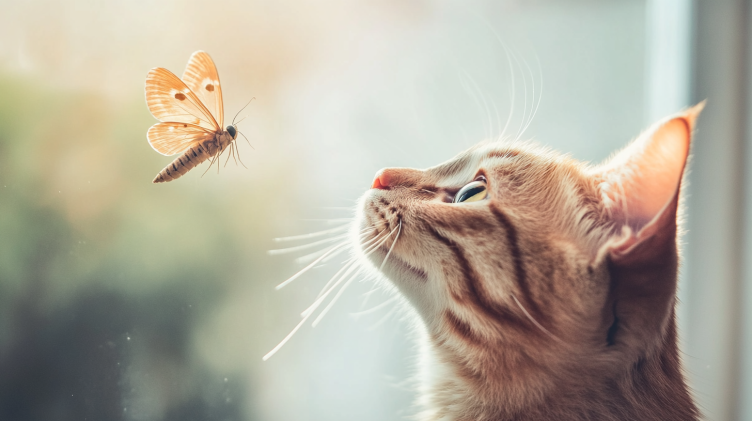
Chattering and Emotional Frustration
Chattering can also indicate frustration. When a cat sees something it wants but can’t catch, it may feel upset. This feeling is often triggered by the fact that the prey is out of reach. The sound can express their need to hunt, even though the situation is frustrating.
You might notice this when your cat is staring at a bird or bug that it cannot reach. It’s a sign of their natural hunting drive being blocked. The cat is frustrated but still eager.
Chattering vs. Other Cat Sounds
Cats make many different sounds. Each sound has a specific meaning. Here’s how chattering compares to other common cat sounds:
- Meowing: Cats meow to communicate with humans. They may ask for attention or food.
- Purring: Purring usually means a cat is content. But, some cats purr when they are anxious or in pain.
- Hissing: Cats hiss when they feel threatened. It’s a warning to stay away.
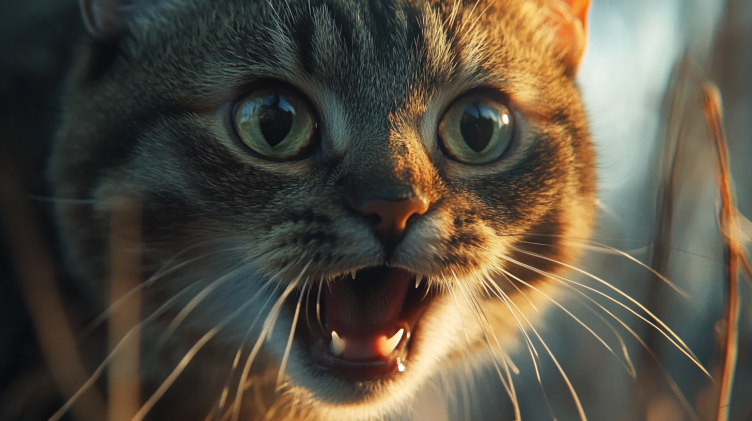
Chattering is different. It’s tied to a cat’s instinct to hunt. Unlike meowing, which is a form of communication, chattering is an automatic reaction. It’s a way for cats to express their desire to hunt.
What Can You Do About Your Cat’s Chattering?
If your cat chatters at bugs or birds, there’s no need to worry. It’s a natural behavior. But you might want to interact with your cat in a fun way. Some cat owners mimic the chattering sound. This can get your cat’s attention and make the experience more engaging.
One cat owner found that their cat became more focused when they mimicked the sound. The cat then moved closer to the bug, eager to catch it. This playful interaction is a great way to bond with your cat.
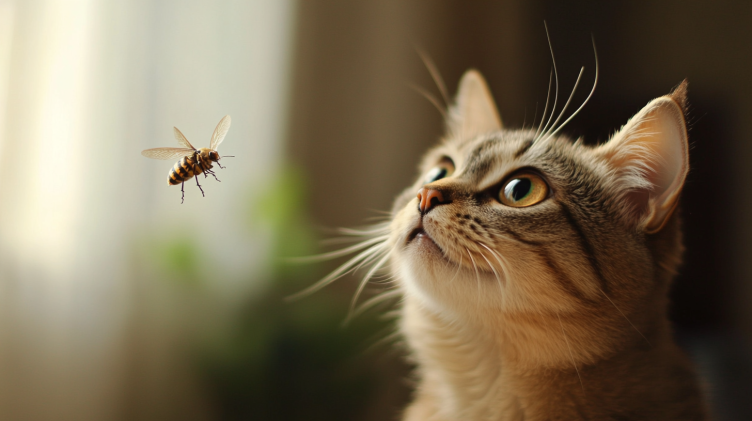
Is Chattering a Sign of Stress or Illness?
For most cats, chattering is normal. It’s just part of their instinctive behavior. However, if your cat chatters excessively, it could be a sign of something else. If the chattering is combined with other unusual behaviors, you may want to consult a vet.
- Normal Behavior: Chattering is generally harmless. It’s a natural hunting instinct.
- Stress or Anxiety: If your cat seems stressed or anxious, it might be worth seeking help.
- Health Issues: Rarely, excessive chattering could point to a health problem. A visit to the vet can rule out concerns.

Encouraging Your Cat’s Hunting Instincts Safely
You can safely nurture your cat’s hunting instincts. There are several ways to do this without letting them hunt real prey.
- Interactive Toys: Toys that simulate prey, like feather wands or small balls, are great for satisfying hunting instincts.
- Laser Pointers: Cats enjoy chasing laser dots. Just be sure not to shine the laser directly in their eyes.
- Window Perches: Set up a perch for your cat near a window. Watching birds or squirrels outside can keep them entertained for hours.
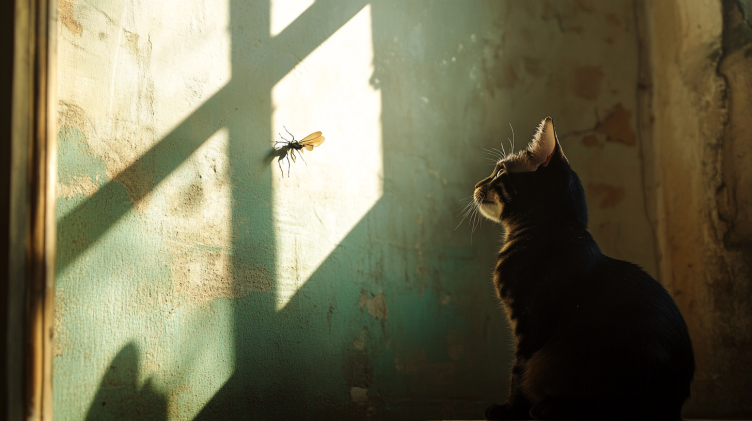
These activities provide mental stimulation and let your cat engage in their natural instincts. They offer a safe and healthy outlet for their energy.







